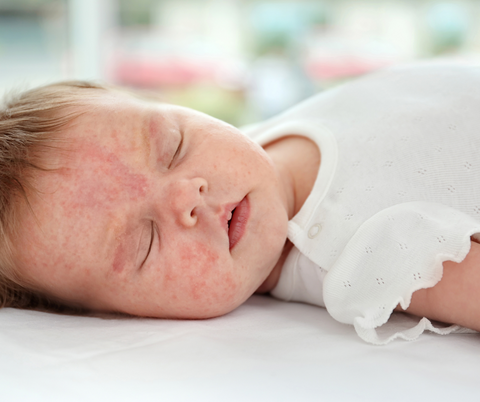What You Need to Know About Egg Allergy in Babies
If you have a baby, then you need to be aware of egg allergies. egg allergy in babies is one of the most common food allergies, and it can cause serious health problems if not treated properly. In this blog post, we will discuss the symptoms of egg allergy in babies, how to treat it, and what you need to know about egg allergies in general. We hope that this information will help you keep your baby safe and healthy!

Egg allergy in babies: causes, symptoms, and treatment
Egg allergy in babies is a reaction to the proteins in egg whites. When these proteins are ingested, the body perceives them as foreign invaders and produces antibodies to fight them off. The next time the baby eats eggs, these antibodies will cause an allergic reaction, which can range from mild (such as hives or itching) to severe (such as anaphylactic shock).
Egg allergy in babies is most commonly diagnosed in infants and young children, but it can occur at any age. The good news is that egg allergy in babies is often outgrown by the time the child reaches school age.
Signs of egg allergy in babies
There are several symptoms of egg allergy in babies that you should be aware of. The most common symptom is vomiting, which can occur minutes to hours after eating eggs. Other symptoms include diarrhea, wheezing, difficulty breathing, and hives. If your baby has any of these symptoms, it is important to seek medical attention immediately. egg allergy in babies can be very serious, and even life-threatening.
What to Do if You Think Your Baby Has an Egg Allergy
If you think that your baby may have egg allergy, the best thing to do is to see a pediatrician or allergist. They will likely perform a skin prick test or blood test to confirm the diagnosis. Once egg allergy in babies is diagnosed, the treatment is simple: avoidance of eggs. This means that you need to be very careful about what your baby eats, as even trace amounts of egg can cause a reaction. You should also avoid egg-containing products, such as some vaccines, as well as products that may contain egg allergens (such as certain brands of peanut butter).
Proper Precautions for Egg Allergy in Baby
If you have a baby with egg allergy, it is important to be prepared. Make sure that you always carry epinephrine with you in case of a severe reaction. You should also educate your family, friends, and childcare providers about your child's allergy and how to deal with it. With proper precautions, egg allergy in babies can be managed successfully.
Do you have any questions about egg allergies in babies? Leave us a comment below! And be sure to check out our other blog posts on food allergies in babies for more information.

